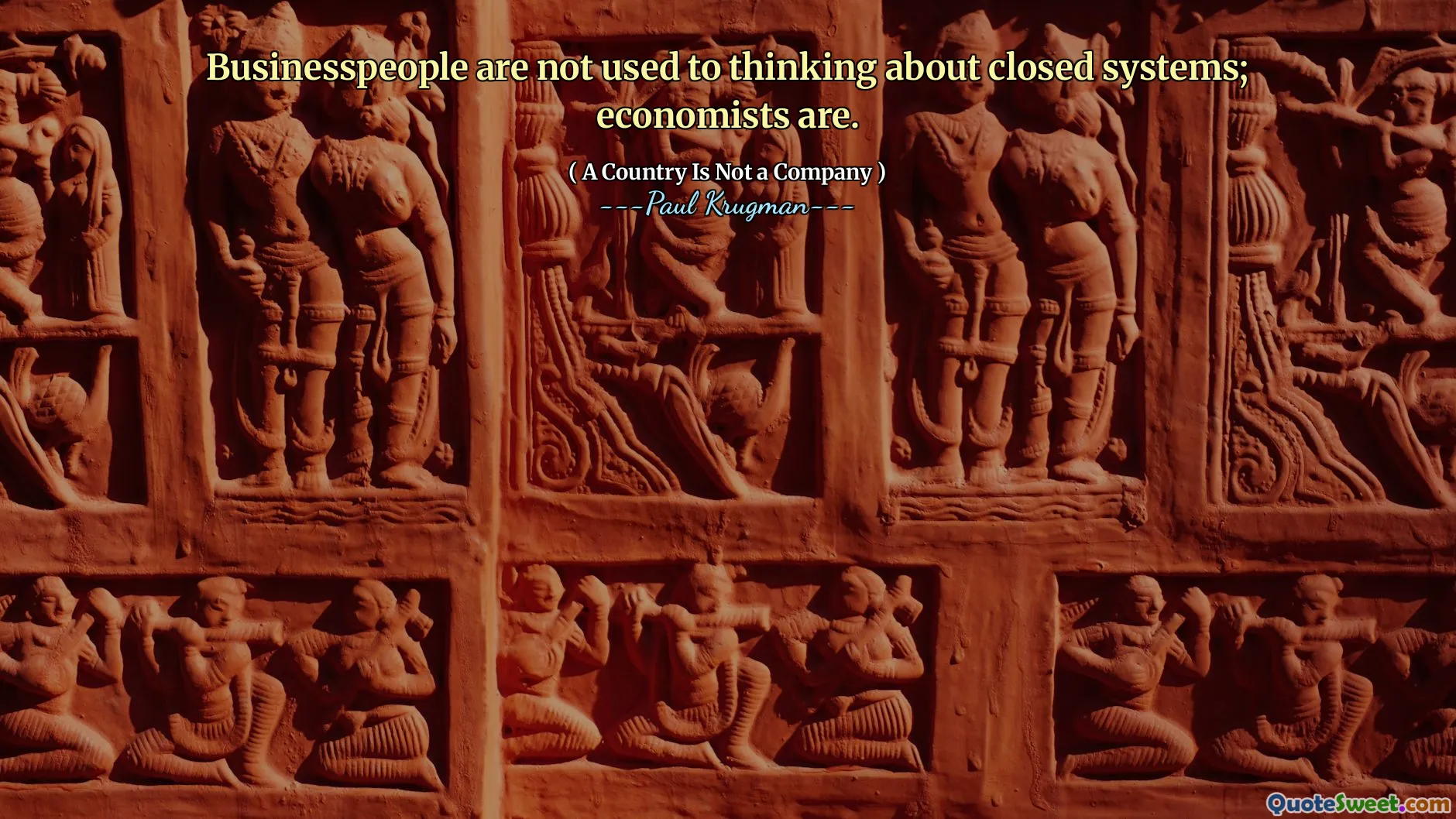
Businesspeople are not used to thinking about closed systems; economists are.
This quote from Paul Krugman's work highlights a fundamental difference in mindset between businesspeople and economists that plays a crucial role in how each approaches problems and decision-making. Businesspeople typically operate in open systems, where external influences, constant market changes, and unpredictable human behaviors prevail. Their strategies often revolve around adaptability, responding to competition, customer needs, and technological innovations, making closed-system thinking less intuitive or practical in their day-to-day experiences.
Economists, on the other hand, often rely on theoretical frameworks and models that treat markets or economies as closed systems to simplify the underlying complexities. These closed-system models allow economists to isolate variables, analyze cause-effect relationships, and draw general conclusions about market behaviors or policies. This contrast in thinking can lead to different interpretations of the same real-world problems.
Understanding this distinction is important as it underscores why economic predictions or policies sometimes seem disconnected from actual business realities. The abstract and controlled conditions assumed by economists are difficult to replicate in the chaotic real-world business environment. Yet, this theoretical rigor provides invaluable insights into systemic trends and policy impacts that might elude practitioners focused on immediate operational concerns.
Ultimately, this quote invites reflection on the need for dialogue between these two perspectives. Bridging the gap could enable more robust approaches to economic strategy, integrating rigorous economic theory with practical business acumen. It also stresses the importance of recognizing the limits of one's own perspective and valuing complementary ways of thinking when addressing complex economic and business challenges.






